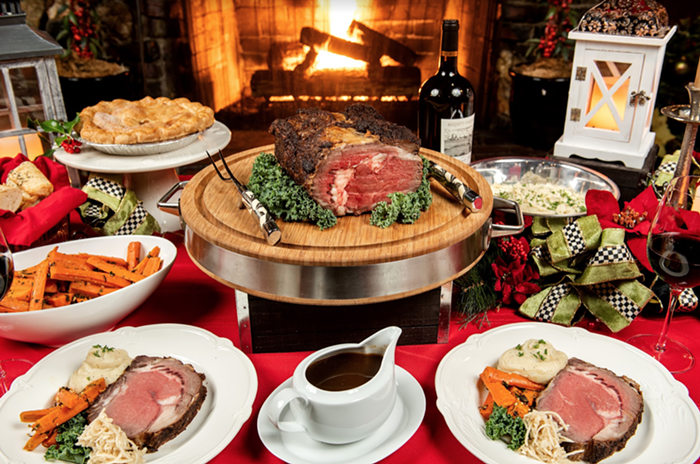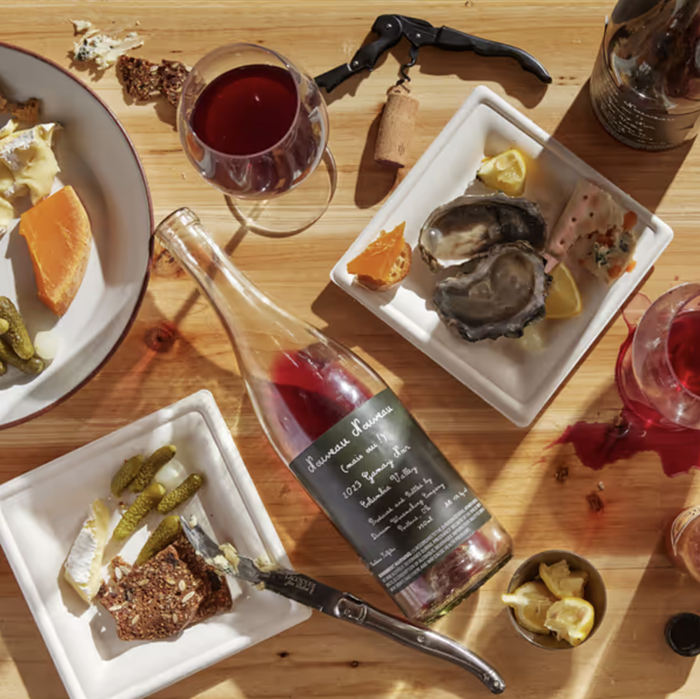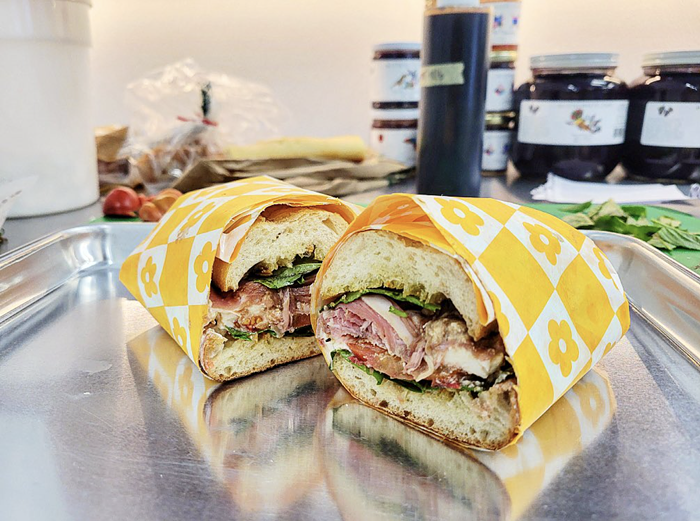I’ve never really understood foie gras. The few preparations in which I’ve had the French delicacy didn’t really blow me away. That being said, I’ve never eaten “real” foie from Alsace, France, and therefore my perspective is somewhat flawed. I respect the culinary cultural heritage of the product, but on the other hand, I don’t really want animals to be force-fed for the sake of human consumption. The issue would seem intractable.
PETA to the rescue? The animal rights organization has created a contest awarding $10,000 to the person or organization that creates an all-vegetarian faux foie gras good enough to be used in fine dining establishments.
Two things: Fat-fucking-chance. Also, who you got judging this thing?
The contest website sounds like the whole thing is a charitable act for those who’ve already given up foie gras for ethical reasons:
But just because gourmets choose to skip this "delicacy of despair" doesn't mean they want to miss out on traditional French food. That's why we are calling on chefs around the world to use their skills to create the first gourmet, purely vegetarian faux foie gras.
PETA’s heart is in the right place, sure, but I don’t know if I’m buying it. I have my doubts any all-vegetarian foie would ever replace the real thing in a fine dining joint worthy of that title. Even if the richness and texture and flavor were replicated exactly, the dirty little secret about foie (and similar products) is it’s eaten not only for what it does on your palate, but also because it places the diner on the soaring parabola of culture, history, and privilege. A foie eater can place themselves in the context of decades of culinary history—among noblemen, elites, and kings. That’s powerful shit.
When I explained the contest to foie gras loving Gabriel Rucker of Le Pigeon, he was somewhat mystified. “That’s such a ludicrous idea,” he said.
“We don’t substitute,” Rucker explained. “When vegetarian customers come in, I don’t give them some Morningstar Farms vegetable patties, I give them vegetables. Fine dining restaurants don’t use substitutions. We make things ourselves.”
There's also the issue of versatility. How could an all-vegetarian foie do what regular foie does in dishes ranging from deserts to mains? “What are they going to make? A fake liver?” Rucker asked.
“I don’t think anyone would use it. I don’t think any of my customers would order it.”
Yes, but would he try it if it were created? “I would be willing to try it,” Rucker replied. “But I bet this is not something I’d taste and say, ‘Fuck yeah, this is good.’”
Which begs the question: How will PETA know when they have a product versatile and good enough to make chefs like Rucker say, “Fuck yeah, this is good”?
The PETA contest rules don’t really have an answer. They simply state that a panel selected at PETA’s discretion will judge the entries. One can only imagine in order for this scheme to work, the judges will necessarily have vast knowledge of fatty fowl liver. Which means a triumph in this contest is built on the sacrifice of ducks and geese. It seems a strange ethical line to traverse.
Questions! Will people who enjoy foie gras be okay with the faux? Will those who’ve never eaten it for ethical reasons suddenly decide consuming fake foie gras is okay? Will people who’ve given up foie breath a sigh of relief? Is PETA simply being generous to anti-foie French food lovers, or are they trying to create a culinary Trojan horse?
It’s a new land in the foie gras debate that’s yet to be soiled by a bloody rhetorical battle. Sharpen your tongues and hit the comments, Blogtownies!



















